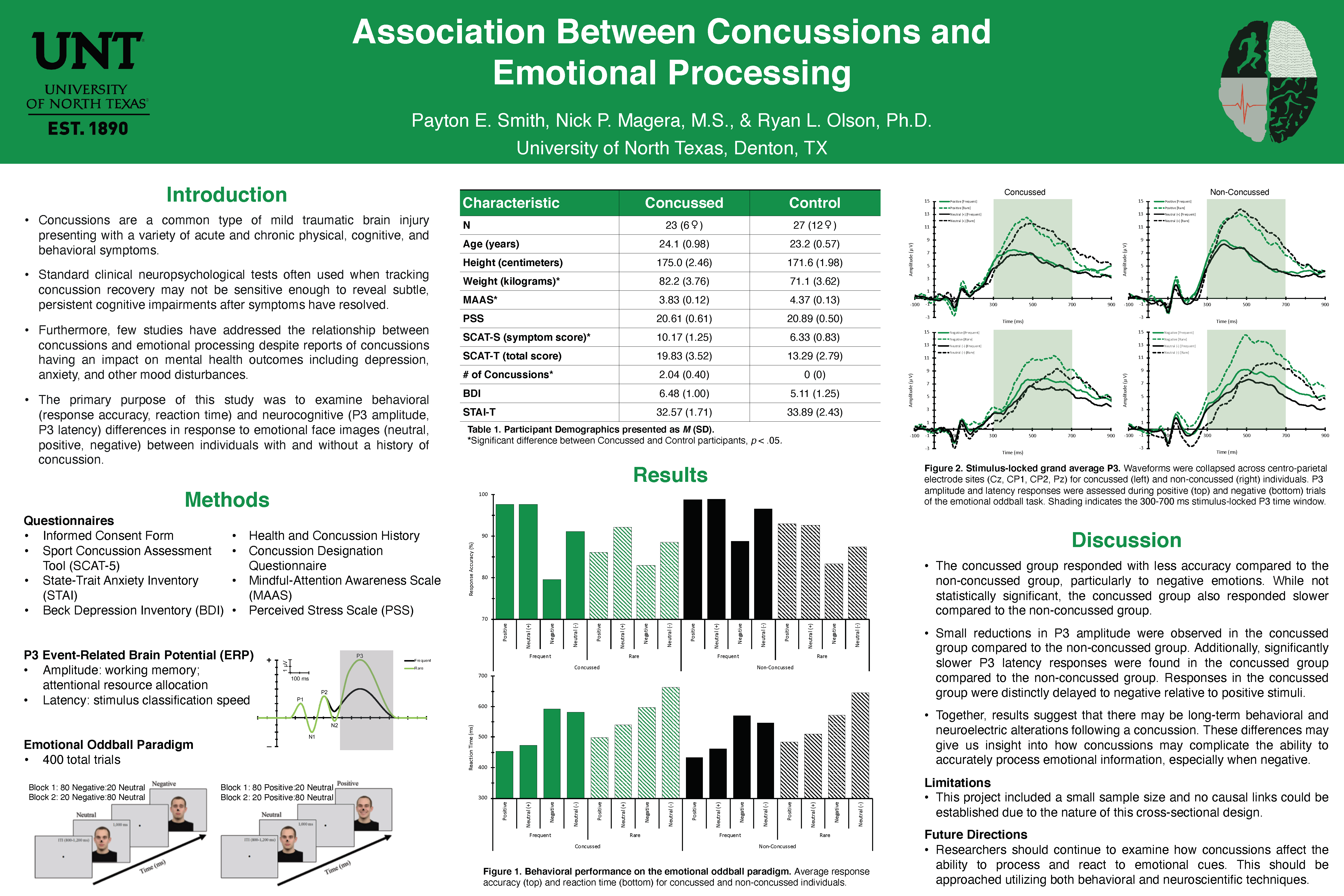First Name:
PaytonLast Name:
SmithMentor:
Dr. Ryan OlsonAbstract:
Concussions are a common type of traumatic brain injury resulting in a series of physical, emotional, and psychosocial symptoms. Following a concussion, emotional processing is thought to be altered through small functional and structural disruptions that impact information processing pathways, which may eventually manifest as behavioral impairments. Thus, the use of both behavioral and functional outcomes may be effective for assessing the changes in emotional processing that may occur following a concussion. The primary purpose of this study was to examine behavioral and neurocognitive differences in response to emotional face images between individuals with and without a history of concussion. Fifty participants (18 female; 32 male) were recruited and assigned to either the concussed (n = 23; Mage = 24.1 ± 1.0) or non-concussed (n = 27; Mage = 23.2 ± 0.6) group based on medical and self-reported concussion history. Participants completed a modified emotional oddball paradigm where representative positive (smiling), negative (frowning), and neutral faces from the Radboud Faces Database were displayed. Neuroelectric measures of P3 amplitude and latency, as well as behavioral measures of response accuracy and reaction time were assessed during the experiment. The concussion group showed significant reductions inaccuracy, but no difference in reaction time compared to the non-concussed group. An increase (i.e., slower) in P3 latency was also found in the concussed group, with no observed group differences in P3 amplitude. Findings suggest that concussions may lead to chronic neuroelectric and behavioral deficits in classifying emotional, facial expressions.Poster:





